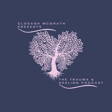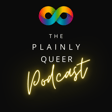
Orlaith O'Sullivan - Mindfulness
In this week's episode of The Trauma and Healing Podcast, we go back to a conversation from 2022 with mindfulness expert Orlaith O'Sullivan. This engaging discussion predates the podcast itself, harking back to a time when I was initiating thought-provoking dialogues on Instagram Live.
Orlaith's insights remain as profound and relevant today, shedding light on the transformative power of mindfulness and its role in personal healing. Listen in as Orlaith explores the nature of trauma, the importance of presence, and the role of inner companionship during challenging times.
This episode offers a thoughtful exploration of mindfulness and healing, a conversation as enlightening today as it was in 2022. Enjoy!
Remember to like and follow The Trauma and Healing Podcast, helping us to share these essential discussions. Enjoy the episode.
You can learn more about Orlaith and her work through her social media platforms and website:
Orlaith's own book "We Are All Flowers." You can explore and purchase her insightful work here.
TRAINING - For any teachers interested in incorporating mindfulness into their professional and personal lives, Orlaith is offering a Summer Course for teachers or those working with children for the month of July 23. You can learn more and sign up for it here.
During our conversation, we mentioned books by Thich Nhat Hanh that delve into mindfulness and healing. You might find them insightful:
- The Miracle of Mindfulness -
- Reconciliation: Healing the Inner Child
Orlaith's meditations, which complement her teachings wonderfully, are available on YouTube and the Insight Timer app.
As always, if you enjoyed the episode, please remember to like and follow to help promote these important discussions.


